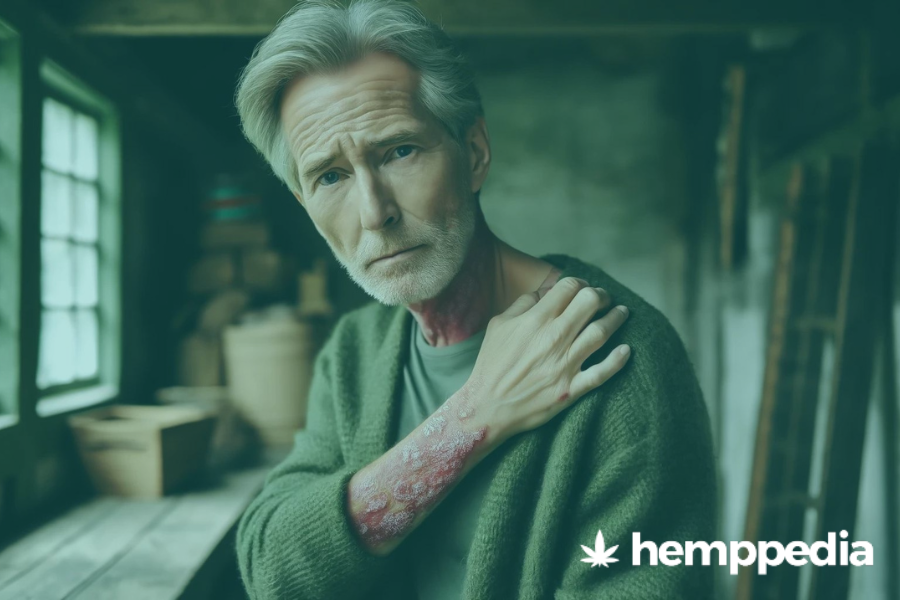Get rid of acne scars by using CBD Oil
Acne scars are one of the most common skin condition that affects both teenagers and adults. People can suffer from moderate to severe forms of acne for many years and even develop permanent scars as a result. While some opt for costly and invasive treatments like laser, a growing number are turning their attention to cannabidiol oil, also known as CBD oil. To gain an insight into this skin condition and the benefits of using CBD for acne, read the following guide on how to get rid of acne scars effectively.
What is Acne?
What are the Causes of Acne Scarring?
Acne scars are the result of lesion or pimple inflammation. These scars occur when an inflamed cyst fills with too much oil, thus causing a crack in the follicles. When the rupture occurs close to the skin surface, it is normally a minor problem, however, if there is a deep rupture in the follicle wall, the infected pus spills out and damages the healthy tissue. As a result, the early stages of acne scarring begin developing. When a serious lesion has broken out, the body’s natural reaction is to quickly repair the damaged tissue by forming collagen. The problem with this wound healing process is that the body can produce too much collagen, a protein that creates discolored or uneven scar tissue.
Different Types of Acne Scars
Ice pick
These scars are very narrow and deep marks that penetrate into the dermis. Your skin will look as if it’s been pierced by an ice pick. The scars are thin holes, and some even look like an open pore. Ice pick scars are developed from cysts or inflamed blemishes. When the skin tissue is damaged, it leaves a long column-like mark.
Boxcar acne scars
These are oval-shaped or round scars with deep vertical edges. Boxcar scars are wider than ice pick acne scars and make the skin look uneven. When the collagen is destroyed by an inflammatory breakout, the skin tissue is lost, thus a boxcar scar develops. These types of scars can be mild to severe, depending on the amount of skin tissue lost.
Rolling scars
These scars cause rolling lines across the skin and differ from boxcar scars as they’re not very well defined. They make the skin look uneven because of the fibrous tissue bands that develop between the skin and tissue. Once the epidermis is pulled from within, the rolling appearance of the skin is created as a result.
Hypertrophic scars
These firm and raised scars to grow over the skin surface. They are most often found on the shoulder area and are most common in men. These scars usually develop after trauma and unlike boxcar and ice pick scars, they’re not caused by tissue loss, but rather from an overproduction of collagen.
Keloid scars
Keloids are more severe than hypertrophic scars. These raised scars grow larger than wounds and can progress much farther than the original wound. Even after the wound has healed, keloids can continue growing. This is because the skin doesn’t know that the wound has healed so it continues producing collagen.
How CBD Oil can be Beneficial for Treating Acne Scars
CBD for acne is extremely effective as it treats this skin condition in three ways; by reducing oil production, minimizing stress, and inhibiting inflammation. CBD oil for acne can either be ingested orally or applied topically to the skin. This oil helps calm down the sebaceous glands and reduce the overall sebum production. By choosing CBD oil for scars, your face will no longer get clogged up with too much oil production and as a result, your acne will be reduced. CBD oil also has an anti-inflammatory effect,1 which is ideal for taming acne scars. If this oil is used regularly, the results can be extremely surprising. Since most topical acne medications can cause significant side effects, the organic CBD creams and oil are gaining popularity among people with skin disorders.
CBD oil for scars also has additional benefits, such as omega 3 and 6 fatty acids, which help improve the overall skin health. When creams or oil are applied to the inflamed skin, it will provide relief by allowing the skin to heal naturally. Your skin has the chance to recover from unsightly acne scars without the use of steroids or other harmful toxins.
How to Get Rid of Acne Scars by Using CBD
CBD for acne is a suitable treatment and comes in different topical forms including, lotions, creams, oils, salves, and balms. CBD on its own isn’t psychotropic and just like all cannabinoids, it interacts with the human body system receptors through the endocannabinoid system. By adding CBD to your daily skin care routine, you will soon find relief from acne scars. The soreness and redness on your face will be significantly reduced through the application of CBD oil or cream directly on the affected area. You can also take the CBD oil supplement on a daily basis to prevent inflammation. The most extreme cases of acne scars can normally be resolved within one week if there is consistent usage of CBD.
How to use CBD oil for acne
You must first clean the area as your skin comes into contact with bacteria every single day. Wash your hands thoroughly and use a towel to clean the affected area. Now you are ready to apply the oil or cream by massaging it deep into the skin until it dries. Repeat this process two or three more times before washing your hands again. Most CBD topical products contain active ingredients like mint or citrus as these components help relieve pain and inflammation. However, you wouldn’t want to get any of these in your eyes or nose so be sure to wash your hands after application.
CBD Oil for Other Skin Conditions
Extensive research has proven just how beneficial CBD can be when dealing with different skin conditions, such as Psoriasis2 Atopic dermatitis3, fibrotic skin diseases4.
The antioxidants in CBD oil have led to research findings that confirm the oil’s ability to slow down skin aging. In addition to CBD’s anti-aging properties, the creams also prevent free radical damage and protect the skin from dullness. If you have sensitive skin, using CBD oil will have soothing effects. Research has also discovered that CBD oil can relieve eczema.
Related article: CBD for skin conditions
Other skin-related conditions that can benefit from the regular use of this natural product include extremely dry skin and rashes. If you suffer from flaky skin, you will need to apply a powerful moisturizer to the affected area in order to prevent the skin from cracking. The topical CBD oil has anti-inflammatory properties that relieve burning sensation and reduce dryness or redness almost instantly.
Skin infections are also the cause of flare-ups, which can be relieved with the help of CBD oil thanks to its antioxidant components. These infections can be alleviated before they get worse. For some people, a stressed immune system will often cause the skin to react by turning into itchy and dry rashes, similar to eczema. By applying the topical CBD oil on a daily basis to your affected area, you will soon experience great results.
CBD for Acne – Customer Reviews*
Finally, a product that works




“Super customer service, fast delivery and the product (Freyja) is the first thing that really helps against postzosteric itching”
Trustpilot review by CF
CBD and Skin conditions – Success Stories
There are countless stories online of people sharing their experience with CBD for different skin conditions. A particularly touching story is the one of a woman named Lina, who calimed her struggles with porphyria have been eliminated thanks to a topical cream called Frejya. Read Lina’s success story here!
References:
- Nagarkatti, P., Pandey, R., Rieder, S., Hegde, V. and Nagarkatti, M. (2009). Cannabinoids as novel anti-inflammatory drugs. Future Medicinal Chemistry, 1(7), pp.1333-1349. [↩]
- Wilkinson, J. and Williamson, E. (2007). Cannabinoids inhibit human keratinocyte proliferation through a non-CB1/CB2 mechanism and have a potential therapeutic value in the treatment of psoriasis. Journal of Dermatological Science, 45(2), pp.87-92 [↩]
- Wollenberg, A., Seba, A. and Antal, A. (2014). Immunological and molecular targets of atopic dermatitis treatment.British Journal of Dermatology, 170, pp.7-11 [↩]
- Marquart, S., Zerr, P., Akhmetshina, A., Palumbo, K., Reich, N., Tomcik, M., Horn, A., Dees, C., Engel, M., Zwerina, J., Distler, O., Schett, G. and Distler, J. (2010). Inactivation of the cannabinoid receptor CB1 prevents leukocyte infiltration and experimental fibrosis. Arthritis & Rheumatism, 62(11), pp.3467-3476 [↩]




